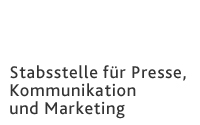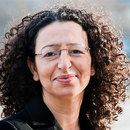Executive Department for
Press, Communication and Marketing
Adolf-Reichwein-Straße 2a Gebäude AVZ (Gebäudeteil AR-NA) 57068 Siegen
Phone: +49 (0)271/740-4915 Fax.: +49 (0)271/740-4911 E-Mail: presse@uni-siegen.de
Future Cities
Which means of construction do we have to apply in order to protect our cities from climate change in the future? And what has to happen to make living in the cities affordable again? Professor Lamia Messari-Becker from the University of Siegen answers these questions.
Housing shortages, rural depopulation, climate change - extreme heat and floods threaten us ever more frequently in the future. What should the cities of tomorrow look like to be prepared for these dangers? "We can achieve a lot by clever construction," says Lamia Messari-Becker, professor for building technology and building physics at the University of Siegen. Smart building – for Messari-Becker this means above all sustainability, a kind of durability of our productivity on different levels. In terms of materials, space, energy, etc., this is in practice associated with building resource-efficiently and with minimized pollution. According to Messari-Becker, a building is only sustainable if it lives up to its socio-cultural function, i.e. if it is being used for a long time. But a collection of sustainable buildings does not a sustainable urban district make. For this, a good infrastructure must be included, as well as quality outdoor spaces and modern mobility. In the end, a city is only sustainable if it can permanently combine its economic competitiveness with a high quality of life for its residents and users, as well as with social stability.
Worldwide, about 50 percent of resource consumption and waste and 40 percent of CO2 emissions are attributable to construction. More than 75% of resource consumption is also concentrated in cities. "Structural engineering and urban construction can translate into climate protection if we tackle the homework properly," says Messari-Becker. The problem: Politics for environmental and climate protection still focusses mainly on the topic of energy. "Building and urban development are not sideshows. Politicians have to tackle the issue more strategically," demands the construction engineer, while actively contributing at the same time. Messari-Becker is a member of the German Advisory Council on the Environment and advises the Federal Government in questions of building and urban development. ZDF's documentary "planet e" with Prof. Messari-Becker on 12th August highlights how the cities of the future can look.
Even today, it is often five to eight degrees warmer in inner cities in the summer than in the green surroundings. The reason: Cooling is made difficult by too much surface sealing, insufficient green space and often by closed ventilation corridors, causing heat to accumulate. One speaks of the so-called heat island effect. "We have neglected this problem far too long and sealed more than was necessary," says Messari-Becker. This creates problems especially in midsummer, such as health problems for people with disabilities and increased energy consumption due to air conditioning. In some German cities, those responsible are now breaking new ground - with roof gardens, green facades or newly planted trees. The green areas not only cool the air but also bind fine dust. "Smart city planning can significantly improve the quality of life," says Messari-Becker. "The prerequisite for this is that we put people more at the center of the transformation and modernization of our cities. The cities of Hamburg and Essen are setting a good example."
Not only the environment, but also the affordable housing play a major role for socially stable cities. "Lodging is the social issue par excellence of our time," says Messari-Becker. In the middle of Frankfurt's banking district, new residential towers are being built. A trend in many cities in the world: Residential high-rises seal a relatively small area and create the required space by their sheer height. The city council has also obliged the builders to create 30 percent subsidized living space - so that tenants with low income also have a chance of living in an attractive apartment. Other builders show that Energyplus buildings including integrated electro-mobility are possible. But this is just one of many aspects of sustainable construction: "We need to completely re-think the relationship between city and country," demands Messia-Becker, as cities increasingly come up against their social and ecological boundaries, a strengthened infrastructure in rural areas is needed all the more: "Cheap land alone will hardly attract anyone to move into the village, and there are other factors that must be right: jobs, fast internet, mobility, making life easier for people in rural areas Dismantling the urban-rural divide is a major societal, economic and socio-political task, as the consequences of this divide are more diverse and extend all the way to loss of confidence in politics."
The documentary "The Cities of the Future" with Professor Lamia Messari-Becker will be broadcasted on Sunday, August 12 at 4:35 pm in the series "planet e." On ZDF.
More information about the program.
Contact:
Univ. Dr.-Ing. Lamia Messari-Becker
University of Siegen
+49-271-740-5010
messari-becker@architektur.uni-siegen.de


